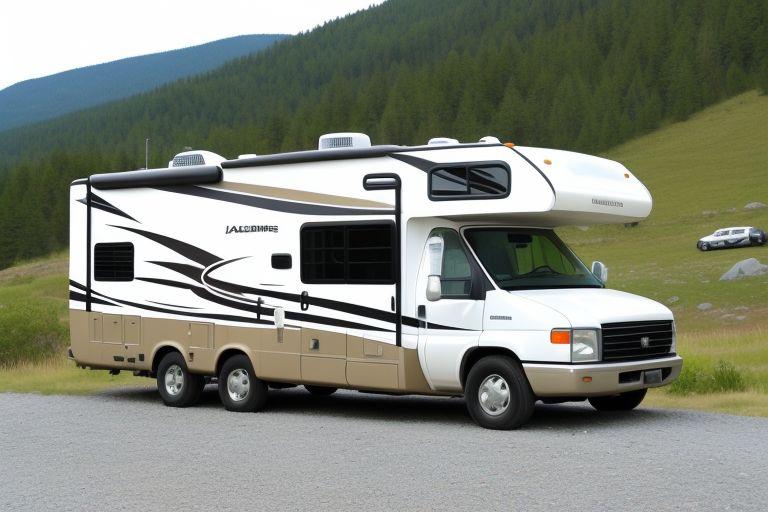
When it comes to moving an RV from one location to another, choosing the right RV transport service is crucial. Whether you're a dealer needing to ship multiple RVs or an individual looking to relocate your home-on-wheels, understanding the various shipping options can make a big difference. In this article, we explore the different methods of transporting an RV, focusing on safety, efficiency, and cost-effectiveness. Reliable RV moving companies offer several solutions tailored to fit different needs and vehicle specifications, ensuring your RV arrives at its destination in top condition.
Overview of RV Transport Methods
Transporting an RV requires selecting a method that best suits the vehicle's needs and the owner's preferences. There are several options available, each varying in cost, security level, and suitability:
- Drive-Away Services: Ideal for road-ready RVs, involving a professional who drives your RV to its destination.
- Tow-Away Services: Suitable for RVs designed to be towed, using a tow bar attached to a truck.
- Flatbed Trailer Transport: Perfect for large, heavy, or non-operable RVs, which are loaded onto a flatbed trailer.
- Enclosed Trailer Transport: Offers the highest level of protection by transporting the RV inside a fully enclosed trailer, recommended for luxury or delicate RVs.
Choosing the right transportation method is crucial to ensure the safety and readiness of your RV upon arrival.

Drive-Away Services
Drive-away services are a popular method among RV transport options, especially for operable and insured RVs that can be driven on public roads. In this service, a professional driver from the RV transport company takes the wheel of your RV, driving it to its destination. This method is ideal for RV owners who prefer not to put additional miles on their personal vehicles but still need their RVs transported over long distances.
Advantages and Limitations
One major advantage of drive-away services is the direct delivery of your RV. Since the RV is driven by an experienced hauler, it often arrives faster compared to other shipping methods. This service also tends to be more cost-effective than shipping an RV on a trailer. However, because the RV is in use during the transport, it may accumulate mileage and wear, which might not be ideal for all owners. Additionally, not all shipping companies provide drive-away services, so availability can vary depending on the RV transport company you choose.
Tow-Away Services
Tow-away services are another effective method offered by RV transport companies to handle your recreational vehicle's relocation needs. This service involves attaching the RV to a tow truck using a tow bar, which is then used to transport the RV to its new location. Tow-away services are particularly suitable for RVs that are designed to be towed, such as trailers and fifth wheels.
Definition and Process
In a typical tow-away service, the RV is securely fastened to a towing vehicle. The towing apparatus varies depending on the RV’s design but often includes specialized tow bars that ensure a secure and stable link. The process requires professional drivers who are skilled in managing the added dimensions and weight of an RV.
Suitability for Different RV Types
Tow-away services are most appropriate for RVs specifically designed to be towed. This method offers a significant advantage in cost-effectiveness and convenience. It allows RV owners to use their RVs immediately upon arrival without additional setup or unloading processes. However, it's crucial to ensure that the RV's power supply systems and structural integrity can handle the stresses of being towed over long distances.
Flatbed Trailer Transport
Flatbed trailer transport is an RV transportation option where the RV is loaded onto a large flatbed trailer. This method is ideal for RVs that are not operable or not certified for road travel and is commonly used for transporting larger, heavier RVs or those that require extra care to avoid wear and tear during transit.
When to Choose Flatbed Transport
Choosing flatbed RV service is particularly advantageous when the RV does not fit standard towing specifications or when it needs to be protected from road wear during transport. This method is also preferable for transporting high-end RVs that require extra protection or for shorter transportation distances where quick loading and unloading are beneficial.
Pros and Cons
The major benefit of using a flatbed trailer is that it offers a secure platform that minimizes stress on the RV during transport. It avoids the wear and tear associated with long-distance driving and is less likely to cause damage. On the downside, flatbed transport can be more expensive than other options due to the logistics involved in loading and unloading the RV, as well as the specialized equipment needed.

Enclosed Trailer Transport
Enclosed trailer transport provides the highest level of security and protection for RVs during shipping. This method involves placing the RV inside a fully enclosed trailer, which shields it from the elements and road debris. It is preferred by many RV shipping companies for high-value recreational vehicles that require additional protection.
Benefits of Enclosed Transport for RVs
The enclosed environment ensures that the RV remains clean, dry, and undamaged by external conditions. This is particularly important for luxury RVs or those with sensitive components that could be affected by exposure to weather or dirt. Enclosed RV transport also offers additional security against theft or vandalism during transit.
Comparative Cost and Security Features
While offering superior protection, enclosed RV transport is typically the most expensive option available. The costs are justified by the high level of security and the peace of mind it provides, especially for owners of expensive or antique RVs. Enclosed transport also often includes additional security features such as locks and alarm systems, further ensuring the safety of the RV during transport.
Special Considerations in RV Transport
Transporting RVs safely and effectively requires careful consideration of several important factors. Successful RV shipping starts long before the recreational vehicle hits the road. One of the key steps in preparing your RV for transport is ensuring it is ready to withstand the journey, irrespective of the RV shipping method chosen.
Preparing Your RV for Transport
To prepare your RV, begin by securing all internal items. Loose objects can cause damage inside the RV during transit, so it’s essential to stow away all personal belongings securely. External elements such as awnings or antennas should be retracted or removed if possible to avoid any damage. It’s also important to check all fluid levels and ensure that gas lines are completely emptied to prevent leaks, which are a safety hazard during transportation.
Insurance and Safety Protocols
Not all shipping companies provide the same level of service when it comes to insurance and safety protocols. It’s crucial to verify that the transport company you choose offers comprehensive insurance that covers any potential damages during the transport. Additionally, discuss with the transport services provider about their safety measures and protocols, especially how they secure RVs on a flatbed truck or within an enclosed space to ensure minimal movement and risk during transport.

Choosing the Right RV Transport Method
When deciding how to ship your RV, it's crucial to consider several key factors that will influence your choice of transport method. These include the distance your RV needs to travel, its size and type, and your overall budget. Making the right choice ensures that your recreational vehicle is transported safely and efficiently.
Guidance on Selecting the Appropriate Method:
- Gather Quotes: Begin by collecting transport quotes from reputable RV transport services.
- Compare Services: Evaluate the quotes not only based on price but also the breadth of services offered.
- Method Evaluation
- Consider the pros and cons of each method:
- Tow-away Services: Best for shorter distances and tight budgets.
- Flatbed Trucks: Ideal for providing security and protection, suitable for larger RVs or longer trips.
- Enclosed Transport: Offers the highest protection, particularly for high-value RVs or extensive travel distances.
This approach allows you to carefully assess each option, ensuring the transport method you choose aligns with your needs for safety, cost-effectiveness, and transport timelines.
Conclusion
Choosing the right RV transport method is crucial to ensure your recreational vehicle's safety during transit. Whether opting for drive-away, tow-away, flatbed, or enclosed trailer transport, each method offers unique benefits tailored to specific needs and vehicle types. Preparing your RV properly and selecting a reliable RV transport company are paramount in protecting your investment and ensuring a smooth and secure delivery.
Ready to transport your RV securely? Contact A1 Auto Transport today for a customized quote and expert guidance on choosing the best RV shipping method for your needs. Secure your RV's journey with trusted professionals.






 Share on Facebook
Share on Facebook Share on LinkedIn
Share on LinkedIn Share on Twitter
Share on Twitter




 Google
Google  Instagram
Instagram  Trustpilot
Trustpilot 



